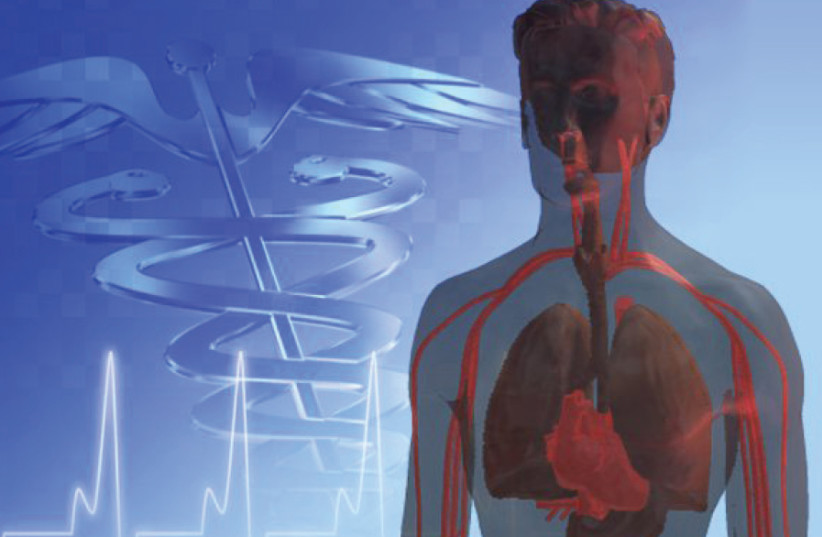Organ donation is a powerful testament to valuing life. It embodies the idea that even in death, we cherish life so deeply that we willingly offer our bodies to save others.
Lucy Dee, a victim of a terrorist attack in the Jordan Valley, exemplified this dedication to life. Tragically, Lucy and her two daughters were murdered as she was driving them on a family vacation. She and her husband had previously agreed that if she were ever declared brain dead, she would become an organ donor. In accordance with their decision, Lucy’s heart, lungs, liver and kidneys were transplanted, ultimately saving numerous lives.
Or Eshkar, a victim of a terror attack in Tel Aviv, is another recent poignant example of the life-saving impact of organ donation. His family’s altruistic decision to donate his organs saved five lives, including a 75-year-old, a 65-year-old, two middle-aged individuals and a one-year-old child.
Regrettably, some Orthodox opinions still prohibit posthumous organ donation due to the misguided belief that brain death is not considered death, even though there has never been a single case in medical history where someone truly brain dead was revived.
In an advice column, Rabbi Aron Moss cites Jewish legal authorities that discourage posthumous organ donation claiming that “to remove organs from a brain-dead patient while the heart is still beating would be tantamount to murder.” Of course, that view is totally inconsistent with medical science and reality.

According to the American Academy of Neurology, brain death constitutes an irreversible loss of all brain functions, including the brainstem, making it the accepted definition of death in the medical community. While Chabad lacks an official stance on this matter, its founder’s primary philosophical text (though not a legal treatise), Tanya, elaborates in Chapters 12 and 51 that the heart, despite being central, obtains vitality from the soul through the brain. This viewpoint also suggests to me that brainstem death, rather than heart cessation, should be the actual definition of death.
During Passover, we refrained from consuming fermented foods, called hametz. Fermentation is a process of decay, which symbolizes death. Instead, we eat matza to demonstrate our rejection of death and our celebration of life. Egyptian culture, in contrast, glorified death and preserving the dead through monuments like the pyramids and practices such as mummification. Their sacred text was called the Book of the Dead, while the Jewish Torah is often referred to as Torat Chaim, the Book of Life. Judaism exalts life.
THANKFULLY, THERE are some improvements happening. Following the implementation of a 2010 law that grants donor-card holders priority in organ allocation, Israel has experienced a significant increase in organ donations in subsequent years. Undoubtedly, donating blood, plasma and nonvital organs, like kidneys, is universally regarded as a mitzvah, a good deed, across all Jewish legal perspectives.
It is particularly notable that Orthodox Jews have a high rate of living kidney donations. The University of Chicago Divinity School reported that the majority of donated kidneys in Israel come from the Orthodox Jewish community in Israel. This is often attributed to the strong emphasis on altruism and the value of saving a life within the Orthodox Jewish community.
Disagreements exist when it comes to posthumous organ donation due to the misguided Jewish legal interpretation that death occurs at heart cessation, not brain cessation. The organs are harvested at brain cessation but the heart can still be kept artificially alive.
However, many Orthodox Jewish legal decisors, like Adin Steinsaltz, Moshe Gutnick and many others, support posthumous donation. In fact, the Halachic Organ Donor Society lists over 340 rabbis with over 85% of them, including the Chief Rabbinate of Israel, defining brain stem death as death and therefore endorsing posthumous donation.
Opposing posthumous organ donation
Some Orthodox Jews also oppose posthumous organ donation because they think it violates principles like honoring the dead and defiling a body. They argue that a body should remain intact after death in preparation for the resurrection. However, this objection is faulty because the concept of saving a life, known as pikuach nefesh, overrides these concerns. Donating organs to save a life is a higher priority and a more significant commandment than preserving a dead body.
Nevertheless, many in the Orthodox world continue to cling to the preservation of dead body parts, even at the expense of saving lives. Perhaps this is a vestige of the Egyptian culture’s obsession with preserving the dead, a misreading of the true medical definition of death, which is irreversible brain stem death or simply an irrational fear.
But the inspiring stories of Dee and Eshkar, both victims of terrorism, demonstrate the power of turning tragedy into hope for others. Their families’ selfless decisions to donate organs embody the Jewish value of cherishing life. Organ donation saves lives and it is crucial for the Orthodox Jewish community to fully embrace its life-saving potential.
The writer has written on culture, law and religion for USA Today, The New York Times, Forward, The New York Post, Reuters and others. Follow him on Twitter: @elifederman.
